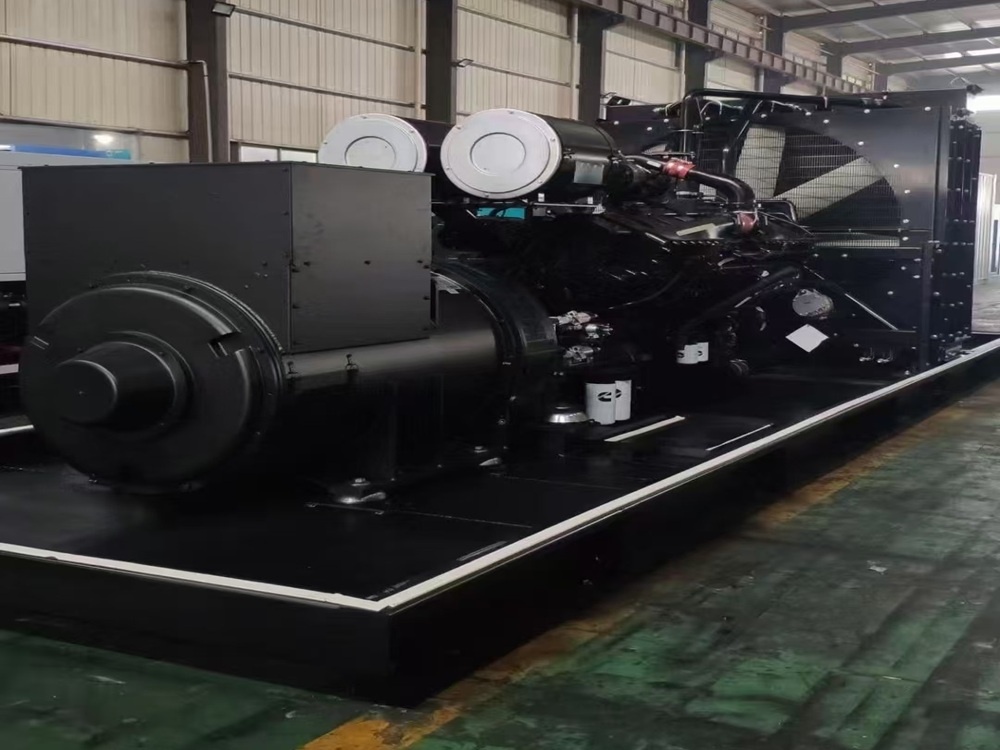ディーゼル発電機のメンテナンスプロトコル
Sep 06, 2023
ディーゼル発電機 ディーゼル発電機は、停電時に電力を供給するバックアップ装置です。定期的なメンテナンスを行うことで、発電機の寿命を延ばすことができます。ディーゼル発電機のメンテナンスは、週ごと、月ごと、年ごとの作業に分かれています。ディーゼル発電機のメンテナンスと整備の具体的な手順について詳しく見ていきましょう。 I. 毎週のメンテナンス 1. エンジンオイルレベルをオイルレベルゲージの最小/最大マークの間で確認します。必要に応じて、同じ種類のオイルを補充してください。2. ディーゼル燃料レベルを監視します。タンク内の水/沈殿物を排出し、漏れがないか点検します。注:新しい燃料は24時間静置する必要があります。3. 冷却水のレベル(ラジエーターキャップのネックから約5cm下)を確認します。低い場合は蒸留水を補充します。4. 冷却ヒーターの動作をテストします(冬季のみ)。5. エアフィルターインジケーターを点検し、赤の場合はフィルター/エレメントを交換します。6. バッテリーの充電電圧を測定します(自動単位)。12V: 通常約14V24V: 通常約27V7. ユニットをクリーニングします。 II. 月次メンテナンス: 発電機は、毎月少なくとも30分間、負荷をかけた状態で運転する必要があります。始動手順と点検項目は次のとおりです。 発電機を始動する前に: 1. 環境の確認:明るく、換気がよく、ゴミのないエンジンルーム。騒音低減対策を実施する。2. 吸気/排気ダクトの詰まりを解消します。3. ラジエーター/エンジンにゴミがないか点検し、緩んでいる/欠けているボルト/ガードを固定します。4. ファンベルトの張力/摩耗をテストし、必要に応じて調整/交換します。5. すべての機器が正確に機能していることを確認し、損傷したユニットを修理/交換します。6. 発電機/制御パネルの電気接続を締めます。7. 冷却水、潤滑油、ディーゼルのレベルを検証します。8. ユニットをスキャンして、水、油、空気、または電気の漏れがないか確認します。 発電機を始動した後:1. 安定した正常な動作を確認します。2. 油圧計を監視します。3~6.5barの範囲を維持します(単位が小さいほど圧力が低く、単位が大きいほど圧力が高くなります)。季節や地域に応じてオイル粘度を選択します。3. トラック冷却水の温度: 70 ~ 90°C を維持します (周囲温度/負荷によって異なります)。4. 充電電圧を確認します。バッテリー電圧より2〜3V高い電圧を維持します。5. AC 出力(周波数、電圧、電流)を確認します。8. 異常なノイズや新たな漏れがないか検査し、検出された場合はシャットダウンします。9. 正常であることを確認します。シリンダー操作冷却水循環排気色(ライトグレー) 異常が発生した場合はシャットダウンしてください。 発電機の停止 通常シャットダウンと緊急シャットダウンに分かれています。 1. 通常シャットダウン:すべての電気負荷を切断する5分間の無負荷クールダウン期間を設けるエンジンを停止する2. 緊急シャットダウン:遭遇したら遅滞なく実行してください: フライホイールの機械的故障オイル回路の詰まりまたは冷却水温度が100°Cを超える異音 / フライホイールの緩み / 伝達機構の故障突然の油圧低下(ゲージ針の急激な低下) 発電機が停止した後: 1. 自動転送スイッチの位置を確認します(自動ユニットのみ)。2. ディーゼル タンクのレベルを点検し、必要に応じて補充します (24 時間静置します)。3. 障害表示を確認し、必要な修理を報告します。4. 非自己循環部品に潤滑油を塗布します。5. 運用データを記録し、エンジンルーム/機器を清掃します。6. 次の操作の開始前チェックリストを準備します。III. 年間メンテナンス(資格を持った技術者が必要)1. すべての毎週のメンテナンス タスクに加えて、次のタスクを完了します。2. 燃料フィルターを交換し、燃料タンクを徹底的に排出/洗浄します。3. クランクケースブリーザーアセンブリを清掃します。4. 仕様に従ってバルブクリアランスを測定し、調整します。5. すべてのエンジン保護センサーとシャットダウン システムをテストします。6. ジェネレータコンポーネントの場合:ハウジング内の湿気やゴミを検査する内部部品を清掃するメガーテスト巻線絶縁(記録読み取り)OEMガイドラインに従ってベアリングに潤滑油を塗布する7. 30%以上の容量で2時間の負荷バンクテストを実施します。すべての運用データを記録する事後テスト: エンジンオイルとオイルフィルターを交換する
続きを読む




